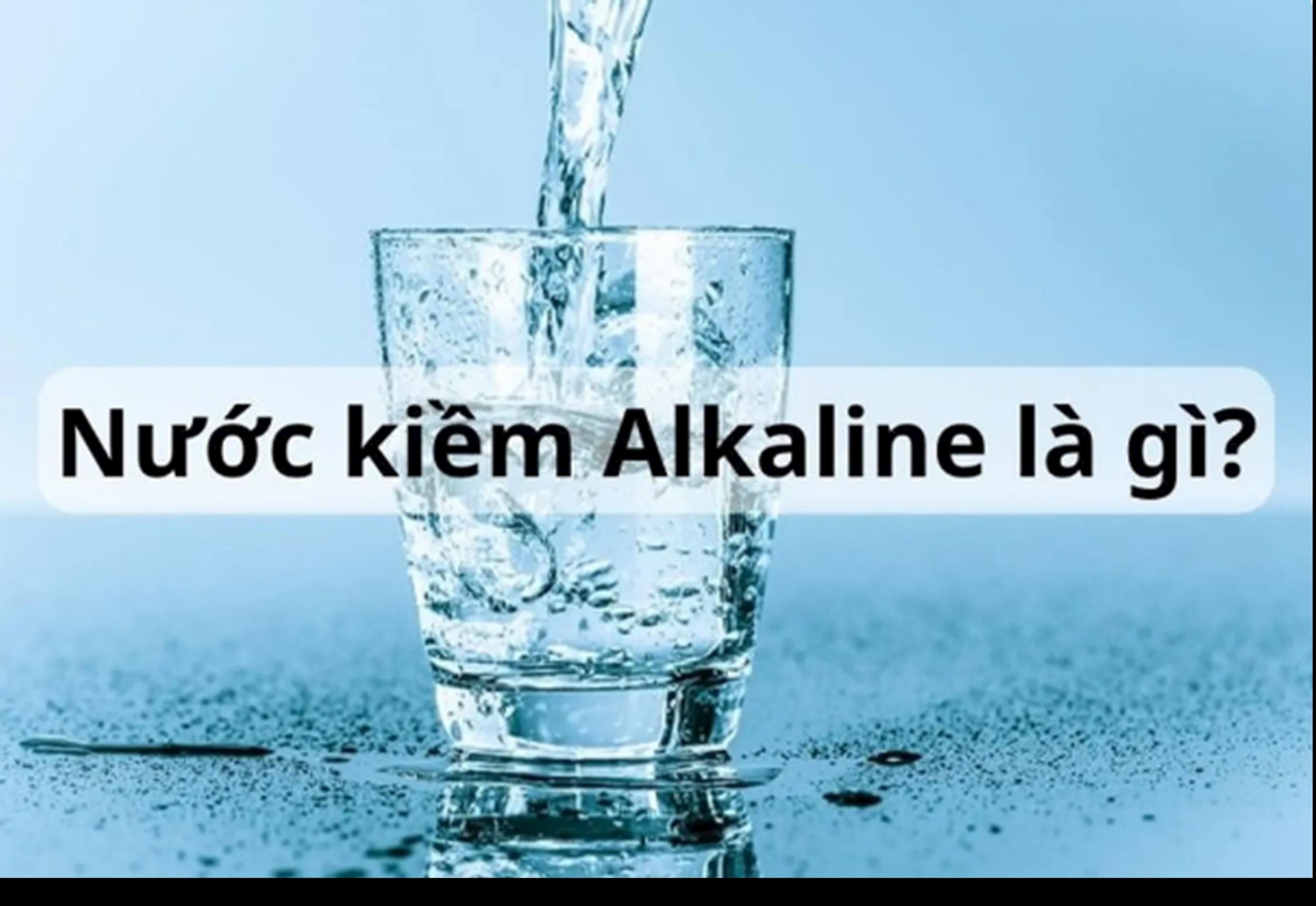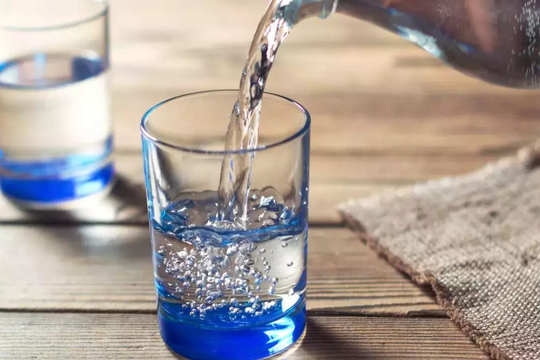Alkaline water: Is it a 'miracle drug' for health?
Alkaline water is being heavily promoted as a “miracle cure” that neutralizes acid, improves digestion, and slows down the aging process. But are these claims actually based on science?
From celebrities to TikTokers who specialize in sharing healthy living tips, more and more people praise alkaline water as an “all-around” solution, from detoxifying the body to slowing down aging.

But amid the hype and the profits from each bottle sold, the question is, are those benefits really worth believing?
What is alkaline water?
Alkaline water is water that has a pH level higher than neutral, a scale used to determine how acidic or basic a substance is. While a pH of 7 is considered neutral, any water with a pH higher than this is considered alkaline.
On the market, bottled alkaline water typically has a pH ranging from 8 to 9, which is higher than the US Environmental Protection Agency (EPA) recommendation of a safe drinking water pH range of 6.5 to 8.5. Highly alkaline water is said to help neutralize acid in the body, although its effectiveness remains a matter of debate in the scientific community.
Does alkaline water really have health benefits?
1. Is alkaline water more hydrating than regular water?
One of the most common claims about alkaline water is that it hydrates more effectively than plain water. This claim largely stems from a relatively small 2017 study of just 36 male soccer players who were divided into three groups: one group drank mineral-rich water, a second group drank alkaline water with few minerals, and the third group drank plain water.
Over the course of a week, all groups consumed approximately 4 liters of water per day and engaged in high-intensity exercise at the beginning and end of the week. The results showed that the group drinking low-mineral alkaline water maintained better hydration than the other two groups after exercise. Based on this, the researchers concluded that regular alkaline water consumption may benefit the hydration status of active adults.
However, it’s important to note that the key word here is “maybe.” Given the small size of the study and the data, which the authors describe as “preliminary,” this study is not yet strong enough to warrant widespread recommendations. Health experts agree that larger studies and rigorous clinical trials are needed before alkaline water can be considered superior for hydration. In the meantime, a glass of clean, filtered water remains a safe and effective way to stay hydrated.
2. Does alkaline water help prevent kidney stones?
Some kidney stones, especially those made of uric acid or cystine, can be linked to overly acidic urine. In these cases, doctors often prescribe medications that increase the pH of the urine to prevent stones from forming. However, long-term treatment with medications can be expensive and requires strict adherence, which not everyone is a good candidate for.
In search of a more accessible alternative, researchers at the University of California, Irvine (USA) analyzed the alkaline content of five popular alkaline water brands, then compared them with prescription drugs, beverages such as orange juice, lemonade, sports drinks and some dietary supplements.
The results showed that although alkaline water had a higher pH than tap water, the actual alkalinity was so low that it was not enough to have a significant effect on urine pH. “Alkaline water does not provide any additional benefit in preventing kidney stones compared to regular tap water,” concluded Dr. Roshan M. Patel, the study’s lead author.
3. Does alkaline water slow down the aging process?
Among the myriad anti-aging methods, from diet to stem cell therapies, drinking alkaline water sounds gentle and less risky. But what does science say about it?
A 2020 study in mice found that giving mice alkaline water for 10 months improved several signs of aging at the cellular level, such as lengthening the protective structures at the ends of each chromosome, which shorten with age.
However, the results in mice cannot be directly applied to humans. The physiology between rodents and humans is very different, and translating the results from the laboratory to clinical applications requires a series of in-depth studies, especially long-term trials in humans.
Is alkaline water safe to drink?
Despite the lack of conclusively proven health benefits, alkaline water is becoming increasingly popular, especially in high-end supermarkets and luxury gyms. If you are thirsty and have no other choice but to reach for a bottle of alkaline water, the question is, is it safe to drink?
For most healthy people, occasional alkaline water consumption is unlikely to cause any serious harm, other than a slightly “weird” taste due to the higher pH level. However, not everyone should drink it without consideration.
According to Dr. Howard E. LeWine from Harvard Health Publishing of Harvard Medical School (USA), people who are using drugs commonly used to treat acid reflux or stomach problems need to be careful. These drugs already have the effect of reducing acidity and raising pH in the body. If combined with alkaline water, the pH level can increase too much, leading to a mild alkalization of the blood, thereby disrupting electrolyte balance such as potassium levels, which is especially dangerous for people with kidney disease.
While alkaline water is often touted for a range of benefits, including detoxification, slowing aging, and preventing disease, most of these claims lack solid scientific support. Some early studies have investigated potential effects, but the small size and weak evidence preclude them from being considered official health recommendations.
In summary, while alkaline water is being touted as a modern “miracle cure,” the scientific evidence is limited and largely preliminary. Some potential benefits, such as better hydration or effects on aging, are intriguing but need to be tested in larger, more rigorous studies. In the meantime, for everyday health, pure filtered water and a healthy diet remain the most reliable foundation.


.jpg)

.jpg)
